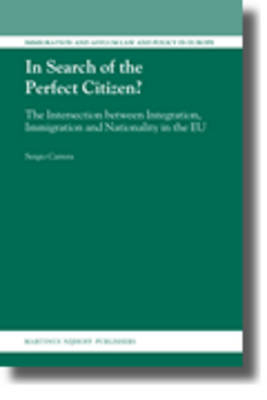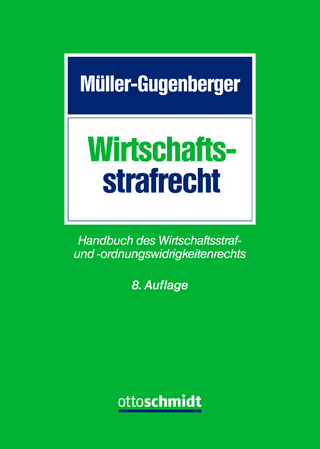
In Search of the Perfect Citizen?
Martinus Nijhoff (Verlag)
978-90-04-17509-9 (ISBN)
This book studies the normative intersection between integration, immigration and nationality in the European Union (EU). It examines the relationship between integration and the legal frameworks of admission, stay and access to nationality by third country nationals at national and European levels. Integration is being subject to multifaceted processes transforming its traditional policy and legal settings, as well as its classical theoretical premises and approaches. The Europeanisation of immigration policy has provoked the emergence of distinctive European approaches on integration. The legal elements of integration are being developed through two parallel settings: the EU Framework on Integration and European immigration law. These venues constitute two of the main pillars upon which the common EU immigration policy is being constructed, and their nexus raises several elements in need of reflection and study. This book examines the processes through which integration becomes a norm in nationality and immigration law and policy at the national and EU levels, and the implications of these processes for the legal status of third country nationals and the overall coherency of the common EU immigration policy.
Sergio Carrera is Head of Section and Research Fellow at the Justice and Home Affairs Section of the Centre for European Policy Studies (CEPS) in Brussels. He holds a PhD on immigration law from the University of Maastricht (The Netherlands). Carrera is an external expert on immigration and integration for the European Economic and Social Committee, the Committee of the Regions and the European Parliament. He is involved in the coordination and research in CHALLENGE, a five-year project funded by DG Research of the European Commission, and participates as an active member in other various European research projects.
Abbreviations; Acknowledgements; Section I – The Intersection Between Integration, Immigration and Nationality in the EU: Setting the Scene; Chapter 1: Introduction; 1. Integration, Immigration and Nationality; 2. The Legal Framework of Integration of TCNs in the EU; 3. Outline of the Book and the Questions at Stake; 4. Scope, Concepts and Methodology; Section II – The Normativity of Integration in EU Law and Policy; Chapter 2: The Relationship between Integration and EU Law and Policy; 1. Introduction: Mapping Integration in EU Law and Policy before Europeanisation; 2. From the 1970s to the 1980s: The Roots of European Cooperation on Integration of TCNs; 3. The Maastricht Era; 4. Amsterdam, Tampere and the Origins of the Dual Framing on Integration in the EU; Chapter 3: The EU Framework on Integration; 1. The EU Framework on Integration: Origins, Concepts, Tools and Structures; 2. Integration and the Treaty of Lisbon; 3. The EU Framework on Integration as an Alternative Form of OMC; 4. Benchmarking Integration in the EU; 5. Conclusions; Chapter 4: European Immigration Law and Integration; Introduction; 1. European Law on Regular Immigration: Processes and Institutional Configurations; 2. The Directive on the Right to Family Reunification; 3. The Directive on Long-Term Residents Status; 4. New Legislative Proposals on Regular Immigration; 5. The Treaty of Lisbon and the Renewed Institutional Framework of EU Immigration Law; 6. Conclusions; Section III – The Normativity of Integration in National Law: The Cases of Spain and France; Chapter 5: The Intersection between Integration and the Legal Framework on Nationality and Immigration in Spain; Introduction; 1. The Construction of Immigrant Spain and the Spanish “Non-Model” on Integration; 2. Evolution of the Spanish Legislation on Immigration and its Changing Articulation with Integration; 3. Integration in the Legal Framework on Nationality and Regular Immigration; 4. The Directives 2003/109 and 2003/86: Transposing Integration “Measures” and “Conditions” in Spanish Law?; 5. Conclusions; Chapter 6: The Legal Framework on Nationality, Immigration and “The Republican Integration” in France; Introduction; 1. The French Republican Paradigm of Integration: Fundamentals and Implications; 2. A Historical Overview of Integration in France; 3. The French Legal System on the Acquisition of Nationality: Naturalisation and Assimilation; 4. The Normative and Contractual Framing of Integration in French Immigration Law; 5. Conclusions; Section IV – The Interplay between EU and National Immigration Law: The General Principles of EU Law; Chapter 7: Testing Member States’ Action against the Principle of Proportionality and Fundamental Rights; Introduction; 1. The General Principles of EU Law and the Rule of Law in EU Immigration Law; 2. The General Principles of Proportionality and Fundamental Rights: The Review of Member States’ Actions within EU Immigration Law; 3. The Tests of Fundamental Rights and Proportionality: The Case of France; 4. Conclusions; Section V – Conclusions; Chapter 8: The Interplay between the EU and National Levels over Integration: Conclusions and Recommendations; 1. The Interplay between the EU and the National Levels over Integration; 2. Reflections on the Normative Framework of Integration in the EU; 3. Recommendations; Resumen; Samenvatting; References; Table of Cases; Legislative and Policy Acts; Biography; Index.
| Erscheint lt. Verlag | 20.5.2009 |
|---|---|
| Reihe/Serie | Immigration and Asylum Law and Policy in Europe ; 17 |
| Sprache | englisch |
| Maße | 160 x 240 mm |
| Gewicht | 1091 g |
| Themenwelt | Recht / Steuern ► EU / Internationales Recht |
| Recht / Steuern ► Öffentliches Recht ► Besonderes Verwaltungsrecht | |
| Sozialwissenschaften ► Politik / Verwaltung | |
| Sozialwissenschaften ► Soziologie | |
| ISBN-10 | 90-04-17509-1 / 9004175091 |
| ISBN-13 | 978-90-04-17509-9 / 9789004175099 |
| Zustand | Neuware |
| Haben Sie eine Frage zum Produkt? |
aus dem Bereich


